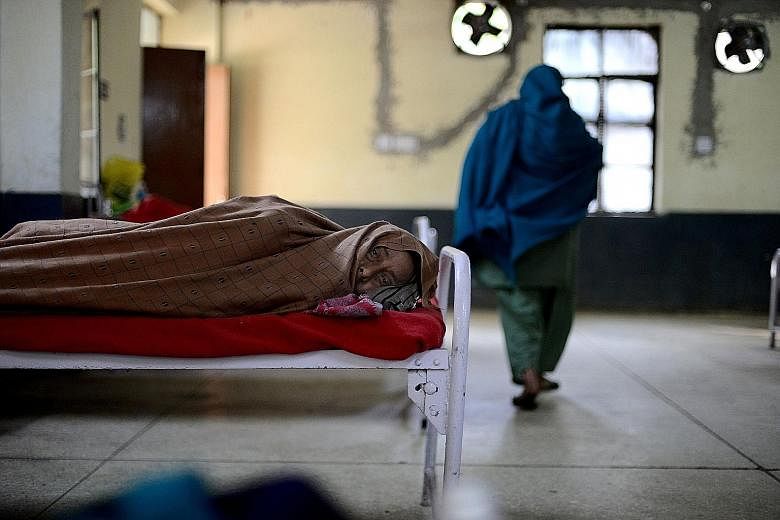NEW DELHI • Finally coming to terms with the enormity of its tuberculosis problem, India is preparing a radical overhaul and expansion of its national treatment programme to fight an affliction that kills more adults worldwide than any other infectious disease.
The severity of the matter was underscored on Thursday when the World Health Organisation (WHO) substantially increased its estimate of the number of new patients with TB in India, to 2.8 million in 2015 compared with 2.2 million in 2014 - more than any other country in the world and more than a quarter of the world total.
The organisation's estimate of new global TB patients rose to 10.4 million, from 9.6 million a year earlier, in large part because of the revised numbers in India. Increases were noted in Indonesia and several other countries.
The revision in India follows a study published in August in the journal Lancet Infectious Diseases that estimated the number of Indians afflicted with TB at 3.6 million, about 50 per cent higher than previous Indian government and WHO figures for 2014.
The increase confirms numerous Indian district and state studies from recent years.
Tuberculosis, a bacterial disease that most commonly affects the lungs, has been curable for decades using a cocktail of antibiotics taken for six months. India brought this cure to the masses in the 1990s, and had early success in reducing the number of cases. But that faded, in part because it failed to reach patients in the private sector, where the vast majority of Indians get medical care.
The disease killed 480,000 in India last year, accounting for about a quarter of the 1.8 million deaths worldwide, the WHO report said.
When not treated properly, TB not only spreads but also mutates into more drug-resistant forms. Multi-drug-resistant TB, in which the two most powerful drugs are ineffective, is contagious and curable only about 60 per cent of the time. A Mumbai pulmonologist, Dr Zarir Udwadia, warned in a paper in 2011 that he had found four TB patients who were totally drug-resistant.
Experts say the severe underestimation of TB patients in the country was the result of undercounting of patients in the private sector. The government and international experts simply tallied the patients in government programmes and added to those a guess at the number being treated privately.
It turns out the world "had little idea of the true scale of the problem in India - the worst affected country", said Dr Nimalan Arinaminpathy, the lead author of the Lancet paper and a senior lecturer at Imperial College London.
The Lancet authors calculated the amount of TB medicine sold in the private sector and then worked backwards to estimate how many people were taking the drugs. Dr Sunil Khaparde, the manager of India's TB programme and a co-author of the study, agreed in an interview that it had given India a better estimate of its TB problem.
But he added that the country plans to conduct a prevalence study during the next three years to determine with more certainty the actual number of cases.
To reach more patients, Dr Khaparde said the government planned to provide free TB drugs and diagnostic tools to patients being cared for by private medical practitioners, as it does now for patients in government programmes.
The government would expand several pilot programmes that have proved successful in involving private medical practitioners. The goal is to ensure their patients are adequately treated and monitored so they finish the six-month regimen to be cured of regular TB, or a longer course of nine months to two years to have the best chance of overcoming drug-resistant disease.
NYTIMES

